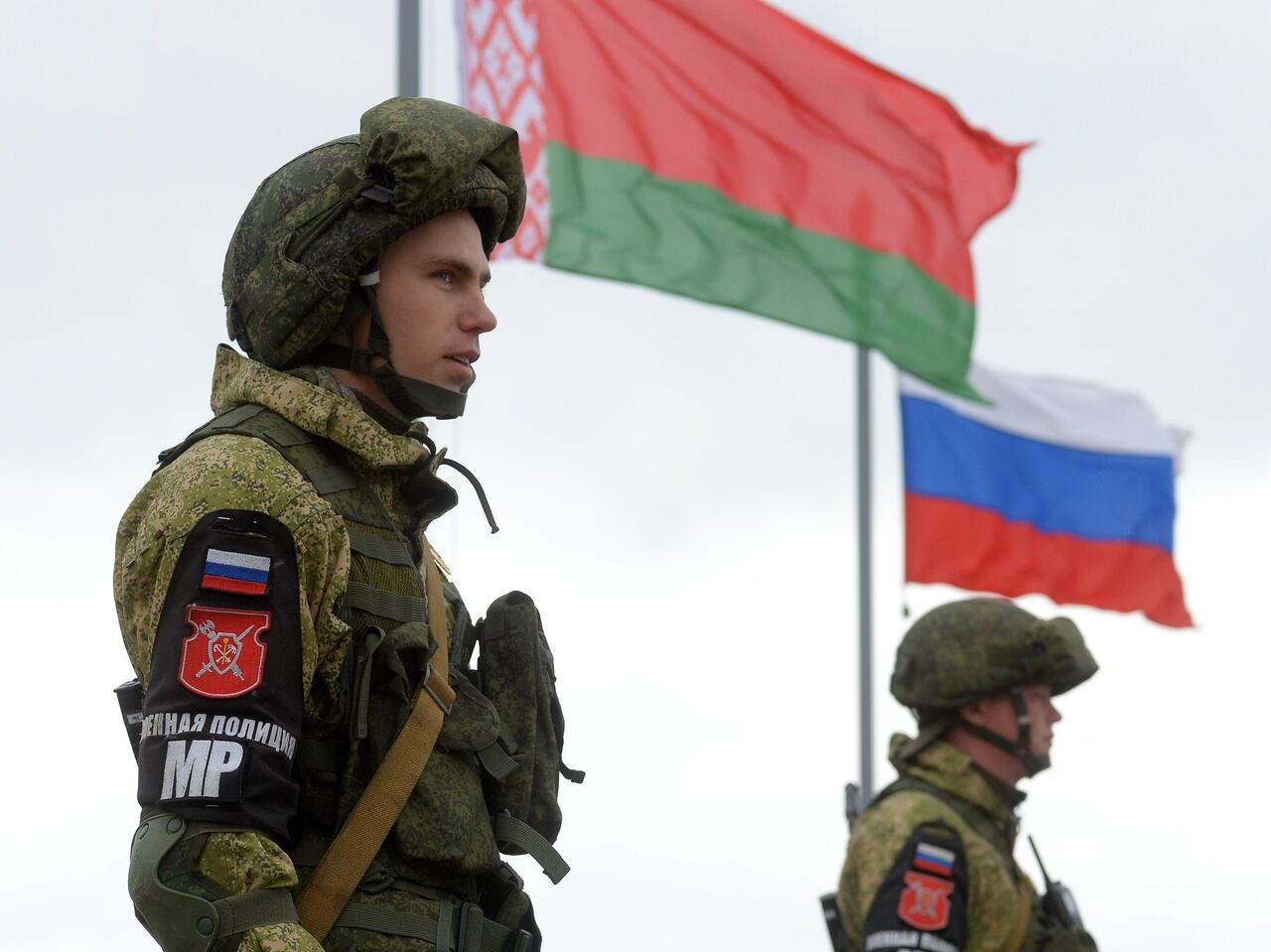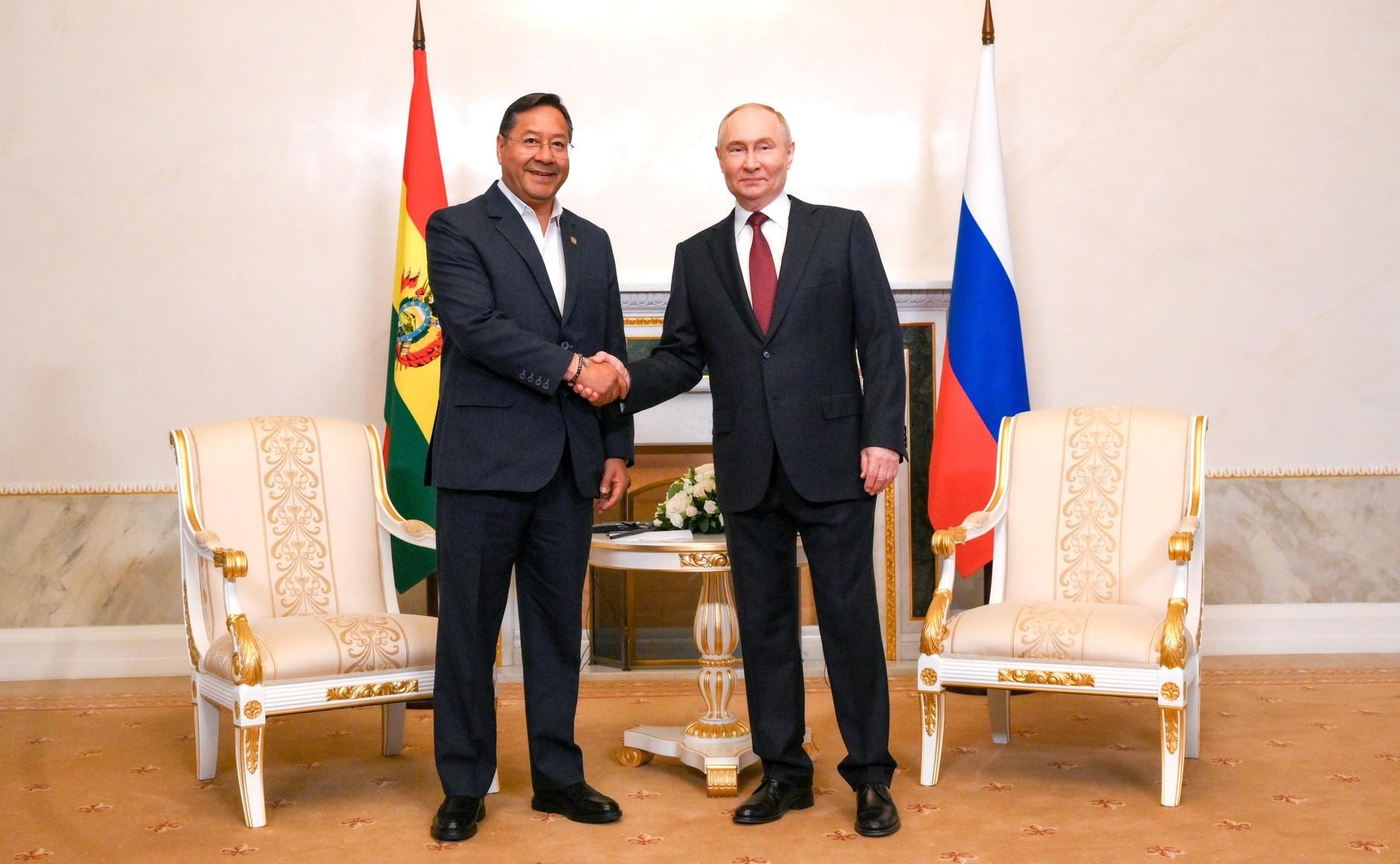
As Domestic Discontent Simmers, Russia Again Tries to Draw Belarus Into War
As Domestic Discontent Simmers, Russia Again Tries to Draw Belarus Into War
Executive Summary:
- Ukraine’s incursion into Kursk has caused Putin’s ratings to fall to their lowest point since the war began. The majority of Russians, nevertheless, still say they are “satisfied” with their lives.
- To prevent the growth of societal discontent, the Kremlin will seek to maintain the fear of an external threat, prevent widespread popular involvement in the war, and achieve new victories.
- The dynamic situation along the front is pushing Putin, once again, to try to draw Belarus into the war to score more successes in Ukraine, which can then be “sold” domestically.
Against the backdrop of Ukraine’s incursion into Kursk oblast, even sociological agencies loyal to the Kremlin have recorded a record drop in Russian President Vladimir Putin’s rating since the war began. A recent survey conducted by the Russian Public Opinion Research Center showed that Putin’s approval rating for the week of August 12–18 dropped by 3.5 percent to 73.6 percent. The level of trust in the Kremlin leader fell by 2.6 percent to 78.2 percent (Wciom.ru, August 23). The Public Opinion Foundation also recorded a drop in Putin’s ratings (Meduza, August 23). Data from independent sociologists paint a bleaker picture. According to the Levada Center, in August, only 45 percent of respondents named Putin among the politicians they trust. Denis Volkov, the center’s director, asserted that the drop in ratings is associated with the Ukrainian incursion into Kursk, adding to the general decrease in this indicator following the presidential elections in March (Аgents.media, August 29). Along with this, another result looks paradoxical. According to earlier research from the Levada Center, the number of those unhappy with what is happening in Russia has dropped to a historical low: only 12 percent of survey respondents said they were unhappy with their current lives. Volkov argued that adapting to life under sanctions and avoiding active participation in the war has contributed to the low number of Russians dissatisfied with their lives (Аgents.media, August 27). The Russian army, nevertheless, continues to sustain heavy losses at the front, and a mass mobilization of city centers could destabilize the uneasy domestic situation. To blunt that blow and better manage societal strife, Moscow seems set on pulling Belarus into the fray, though official Minsk continues to avoid the active fighting.
From a psychological perspective, the Putin regime has thus far been successful in maintaining support for the war among most Russians. Experts point out that one of the Kremlin’s levers of societal control is the exploitation of fear, not only fear of repression but also fear of Russia’s destruction should the regime fall. Russian expert Fiona Hill has noted that “Putin is a master at manipulating fear.” Having unleashed the war, he “heightened the fear of a literal end of the world due to a nuclear cataclysm” (Re-Russia.net, July 22). Other factors influencing the public opinion data include the prevailing idea that the majority truly supports Putin and a desire to conform to the majority’s opinion (Istories.media, August 30).
The Putin regime’s ideal “formula for societal control” has three components: exploiting fear of an external threat; maintaining a certain comfort level, thus making it possible to adapt to war conditions without much effort; and scoring new victories as a means of partially neutralizing fear so domestic anxieties do not threaten the regime. The developments in the Kursk region have only partially affected the second component of this formula and jeopardized the third, which contributed to the drop in Putin’s rating. For the overwhelming majority of Russians, the first two components—fear of an external threat and the ability to adapt to it—have not fundamentally changed. Nevertheless, to prevent further loss of confidence and the destruction of basic support for the regime, Putin faces a rather difficult task: to demonstrate in the near future new military victories and avoid bringing a larger portion of Russian society into the war. In some ways, the ongoing Russian offensive in the Pokrovsk direction is meant to deliver some political capital to Putin’s Kremlin, though Moscow will need more.
Now, Russian military and political strategists are searching frantically for ways to solve this problem. Authors on the “Military Review” website, close to the Russian Ministry of Defense, call for “stopping to think of other nations” and “starting to fight seriously” (Topwar.ru, August 26)—first of all, by destroying Ukrainian bridges (Topwar.ru, August 28). Writers for Vzglyad call for the rapid capture of Ukraine’s Pokrovsk, assuring that after this feat, Ukrainian attacks on Russian border territories “will lose their meaning” (Vzglyad, August 29).
Perhaps the most alarming idea comes in an article about how Ukraine allegedly plans to attack Belarus and “is preparing an information base for the beginning of hostilities” (Topwar.ru, August 29). Deriving from Putin’s internal need to bolster his fallings, the Kremlin may try to actively draw Belarus into direct military confrontation with Kyiv to use the Belarusians to create the illusion of the “victories” Putin so desperately needs.
Moscow’s need for increasing pressure on Belarus may come from the words of President Alyaksandr Lukashenka. The Belarusian leader recently complained about how he constantly “is advised to stop cooperating with Russia and start fighting on Ukraine’s side and invite NATO forces to Smolensk,” 99 percent of which he “cannot accept” (Belta.by, August 27). Lukashenka may have made these comments publicly to underscore his loyalty to Putin or to negotiate some room for maneuver from the Kremlin. Russian propaganda, however, took his words differently. Columnists from Vzglyad voiced their concerns about Lukashenka’s ongoing loyalty to Moscow. They reminded readers that Belarus’s transition to the West “is a totally unacceptable situation for Russia from the point of view of the country’s national security” (Vzglyad, August 28).
Lukashenka may be demonstrating his loyalty to Moscow in amassing troops on the border with Ukraine, though he has assured his commitment to staying directly out of the conflict. While most experts are inclined to believe such claims, the Kremlin may seek to use Belarusian territory to launch small strikes into Ukraine (Deutsche Welle–Russian service, August 27). The situation remains tense and could change at a moment’s notice. Drawing Belarus into the war would solve two problems for Putin: likely helping restore his ratings and more strongly “binding” Minsk to Moscow. Under these circumstances, Moscow’s increased pressure on Minsk should be watched closely.


